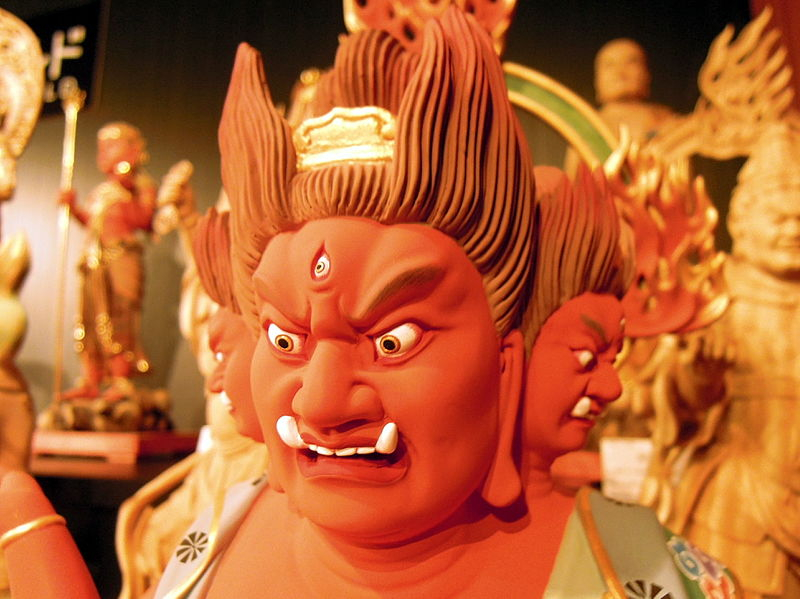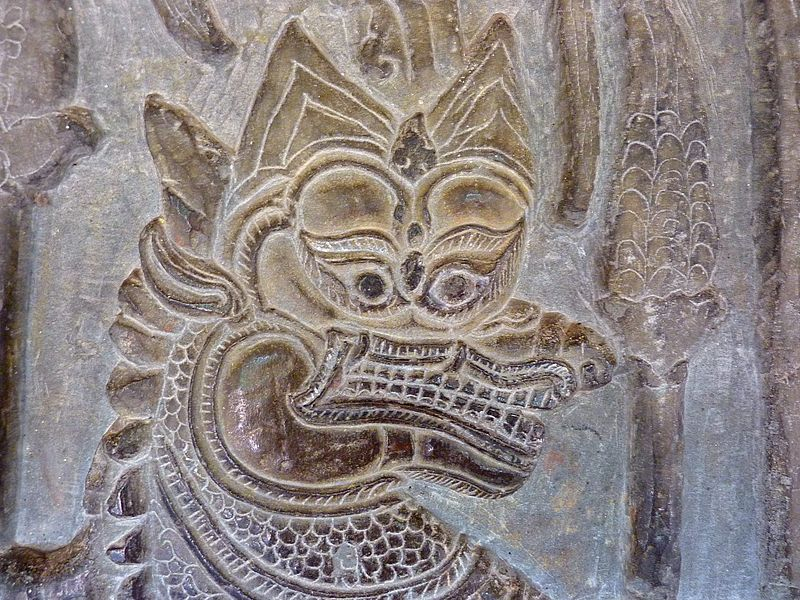Asuras
Asuras emerge as mythic figures in the Three Worlds Cosmology, particularly in specific interpretations of Hinduism and Buddhism. Often depicted as potent and occasionally antagonistic beings, they inhabit a distinct realm within this cosmological structure.
These celestial beings reside adjacent to the domain of the Devas and other elevated entities. Within this cosmology, they constitute one of the primary triads of beings, coexisting with Devas and humans. Asuras frequently conflict with Devas, their pursuits revolving around the quest for power and dominance.
Fierceness and combativeness characterize the portrayal of Asuras. A complex blend of positive and negative traits defines their nature, encompassing ambition, a thirst for power, and a covetous desire for wealth. Often pitted against the Devas, they function as rivals or adversaries, their confrontations revolving around acquiring precious resources, including the celestial elixir of immortality, known as "amrita."
As cautionary symbols, Asuras vividly illustrate the hazards inherent in excessive ambition, pride, and the allure of power and material riches. Their narratives underscore the fleeting nature of worldly accomplishments. Like all residents within the Three Worlds Cosmology, Asuras remain enmeshed in the birth, demise, and rebirth cycle, their fates intricately interwoven with the karma they accumulate through past actions.
Asuras personify an array of attributes within the Three Worlds Cosmology, encompassing ambition, strife, and the yearning for dominance. Through their interactions with Devas and participation in cosmic clashes, they serve as a conduit for moral lessons and reflections on the intricacies of human nature, desires, and the ripple effects of deeds.










